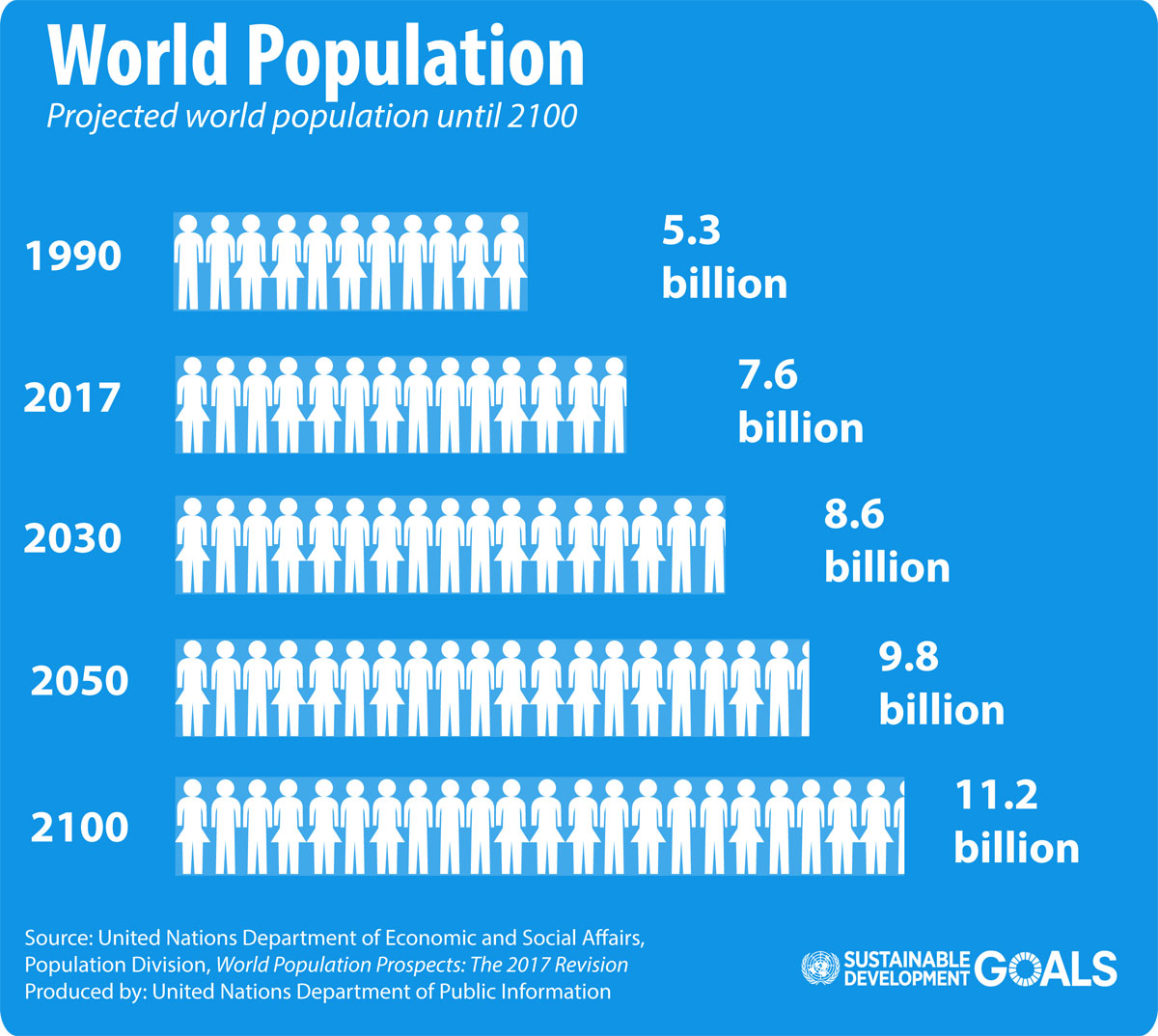At the present rate, the world population is expected to reach 8.6 billion in 2030, 9.8 billion in 2050 and surpass 11.2 billion in 2100. And Nigeria is projected to become the third most populous country in the world, which currently ranks seventh, and which is poised to replace the United States by 2050 according to the United Nations’ World Population Prospect.
The world population is now nearly 7.6 billion, up from 7.4 billion in 2015, spurred by the relatively high levels of fertility in developing countries – despite an overall drop in the number of children people have around the globe, the UN reported.
“With roughly 83 million people being added to the world’s population every year, the upward trend in population size is expected to continue, even assuming that fertility levels will continue to decline,” said the report’s authors at the UN Department of Economic and Social Affairs. At this rate, the world population is expected to reach 8.6 billion in 2030, 9.8 billion in 2050 and surpass 11.2 billion in 2100.
The growth is expected to come, in part, from the 47 least developed countries, where the fertility rate is around 4.3 births per woman, and whose population is expected to reach 1.9 billion people in 2050 from the current estimate of one billion.
In addition, the populations in 26 African countries are likely to “at least double” by 2050, according to the report. That trend comes despite lower fertility rates in nearly all regions of the world, including in Africa, where rates fell from 5.1 births per woman from 2000-2005 to 4.7 births from 2010-2015. 
In contrast, the birth rate in Europe was 1.6 births per woman in 2010-2015, up from 1.4 births in 2010-2015. “During 2010-2015, fertility was below the replacement level in 83 countries comprising 46 per cent of the world’s population,” according to the report. The lower fertility rates are resulting in an ageing population, with the number of people aged 60 or over expected to more than double by 2050 and triple by 2100, from the current 962 million to 3.1 billion. Africa, which has the youngest age distribution of any region, is projected to experience a rapid ageing of its population, the report noted.
In terms of other population trends depicted in the report, the population of India, which currently ranks as the second most populous country with 1.3 billion inhabitants, will surpass China’s 1.4 billion citizens, by 2024 while Nigeria is projected to move to third by 2050.
The report also noted the impacts of the flows of migrants and refugees between countries, in particular noting the impact of the Syrian refugee crisis and the estimated outflow of 4.2 million people in 2010-2015.
In terms of migration, “although international migration at or around current levels will be insufficient to compensate fully for the expected loss of population tied to low levels of fertility, especially in the European region, the movement of people between countries can help attenuate some of the adverse consequences of population ageing,” the authors wrote




